Mysuru: Health and transport, the lifeline of common man is hit, then life can go out of gear.
The city this morning witnessed these two sectors up in arms against the policies of the Governments both at the Centre and in the State.
First, the petrol bunks in the city were shut since early morning. This was followed by the outpatient departments (OPDs) of private hospitals and nursing homes, which stopped functioning.
There are 75 bunks in the city and 247 in Mysuru district, while Mandya district has 120 bunks, Chamarajanagar 100, Hassan 150 and Kodagu 90 petrol bunks. The outlets belonging to BPCL, HPCL and IOC were closed. However, Reliance and Shell outlets that are not supporting the strike are open.
The closure of bunks for the day, has affected only the tourist vehicles, goods vehicles and trucks coming from different parts of the country.
But the people of the city were not affected as most of them had filled their petrol tanks the previous evening itself.
Meanwhile, surprised at the stand taken by the petroleum dealers, the Territory Manager of BPCL Jagannath Rao rushed to the petrol bunk on KRS Road and threatened to close down the retail outlet immediately if they do not keep it open. He allegedly told the owner of the bunk, “You go ahead and keep it closed, we will close it permanently.”
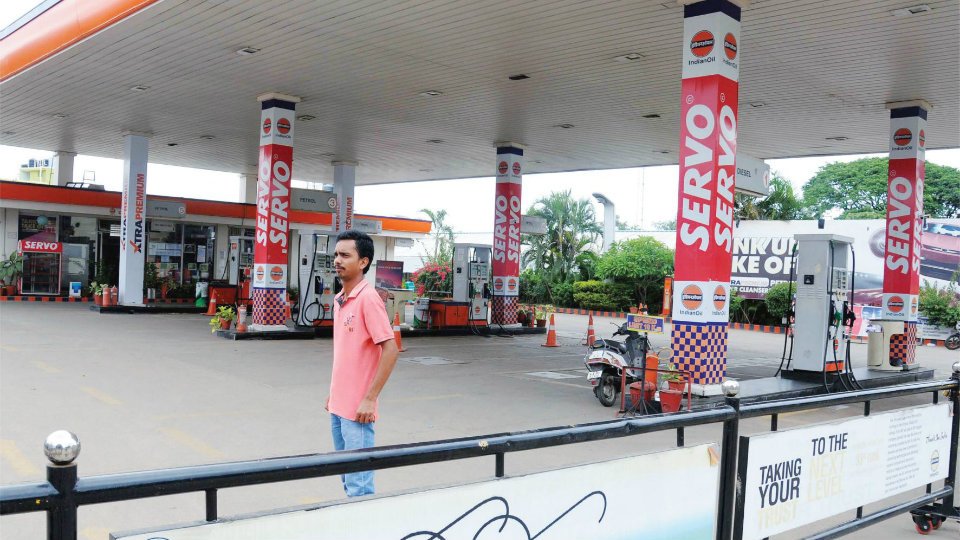
Picture shows a Petrol Bunk in Mysuru closed following a day-long protest by bunk owners against the Centre’s Policy.
A few of the members of the Federation of Mysore Petroleum Traders (FMPT) and IOC Dealers Association reached the spot on hearing about the highhandedness of the Territory Manager. Then they had a discussion with him explaining how when they were protesting, the dealers had supported them, said Ranjit Hegde, Secretary of IOC Dealers Association to Star of Mysore.
The dealer of the outlet stood firm and closed the bunk supporting the strike. But there was pressure on him to open it, said Hegde.
“The day is not too far off when the petroleum dealers will also have to resort to suicides like the farmers in this country. The proposed Marketing Discipline Guidelines (MDG) is so draconian that no bunk can function even for a day if they are strictly implemented,” he said.
“If by chance the pump automatic dispenser is not working when the official from the corporation concerned visits, then the bunk has to be closed for sixty days and a fine of Rs. 5 lakh will be imposed. If this is not bonded labour then what is it,” said the FMPT Association President Shashikala Nagaraj, speaking to Star of Mysore.
“This is like adding insult to injury. We are now striking for a day as a token of protest. If the government does not listen to us, then we have to take harsher steps,” she warned.
Private hospitals protest
Protesting against the State Government’s move to implement the Karnataka Private Medical Establishments (Amendment) Bill 2017, most of the private hospitals and nursing homes in the city shut their outpatient departments. However, the casualty, emergency and operation theatres were functioning as usual.
The hospitals where the OPDs have been closed include BM Hospital, Brindavan Hospital, Apollo Hospital, Columbia Asia Hospital, Narayana Hridayalaya, Cauvery Hospital, to name a few.
KR Hospital, Primary Health Centres, the Maternity Hospital in Nazarbad, Community Health Centres in the Taluks and Hoblis and District Hospitals were all open. As a result there was rush of patients at these places. Even some of the private clinics in areas like Kuvempunagar, Gokulam, Ramanuja Road were open to treat the patients.
To treat the extra rush at KR Hospital, the Post Graduate students and interns were pressed into service to treat the patients.
Meanwhile, nearly 150 doctors, all members of the Indian Medical Association charted three buses from JK Grounds and left for Bengaluru to participate in the State-wide protest.
The Bill provides for imposing a penalty up to Rs. 5 lakh and imprisonment of up to three years if hospitals/nursing homes collect charges higher than that fixed by the State Government. The person who runs the hospital will be held responsible for violations and minimum penalty has been fixed at Rs. 25,000 and imprisonment of not less than three months.



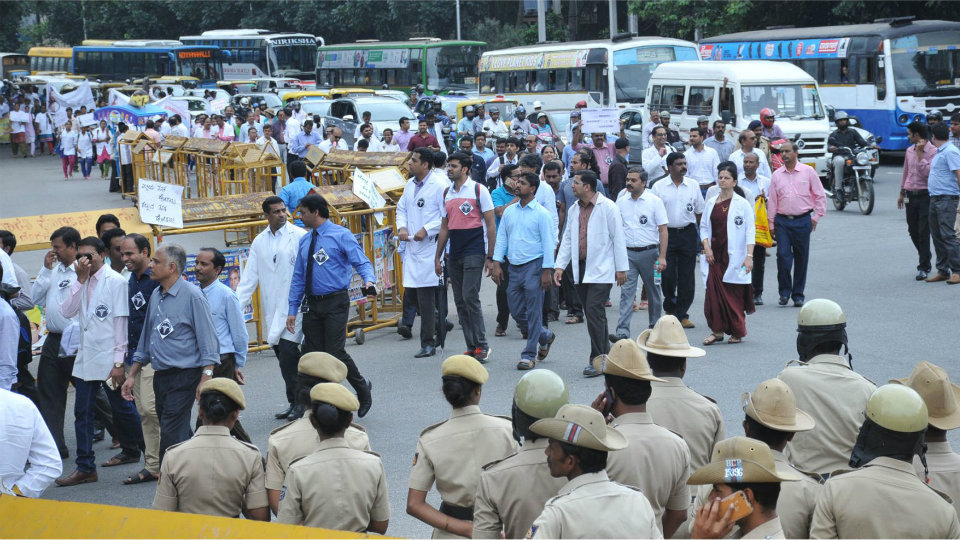
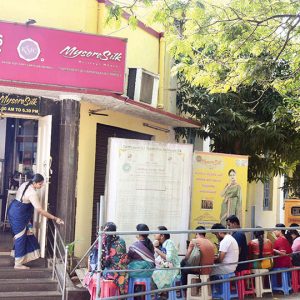
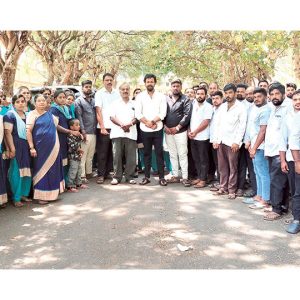
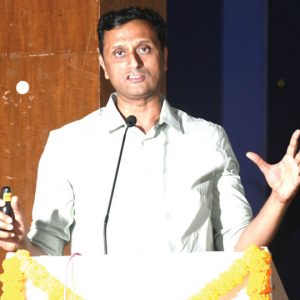
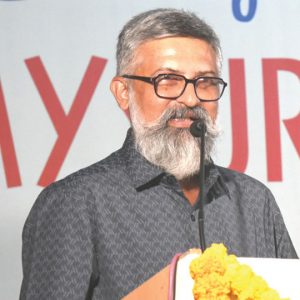
Recent Comments